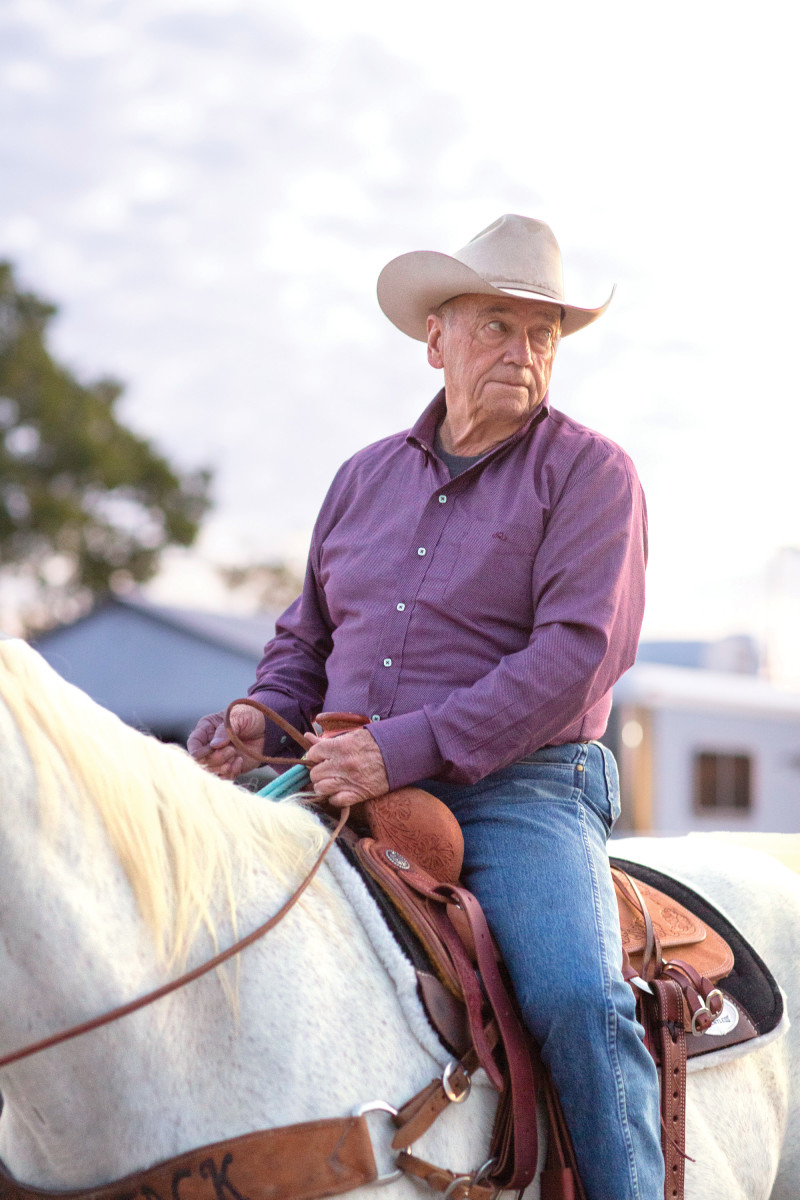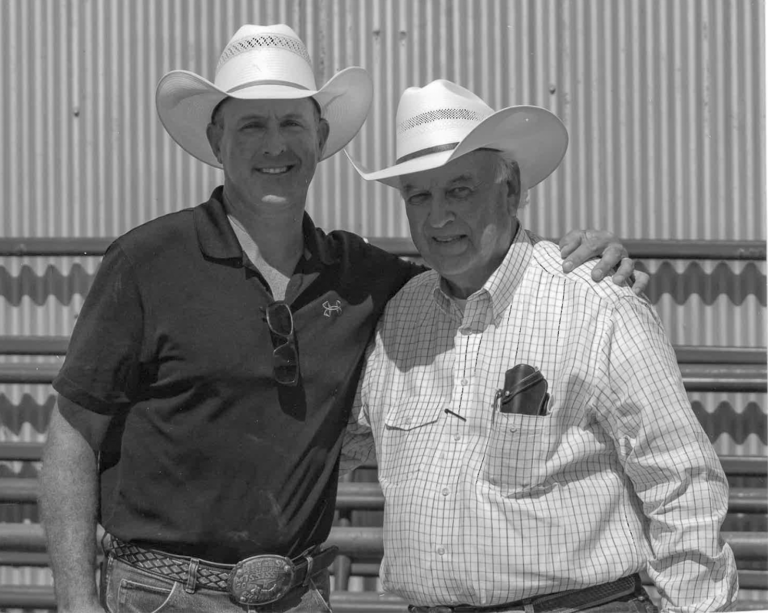“Courage is being scared to death and saddling up anyway,” John Wayne said. Whether there’s any record of Cactus co-founder Mike Piland being “scared to death” is questionable, but “saddling up anyway” has pretty much been a fact for much of his remarkable life.
“My dad passed away when I was 18 and he left me with this cotton gin,” explained Piland, who was born in 1945. He lived in Dilley, Texas, about halfway between San Antonio and the border town of Laredo.
[Shop: Cactus Gear]
Cactus’ The Future MH Heel Rope
(As an Amazon Associate, we earn from qualifying purchases made through affiliate links.)
If it wasn’t enough to lose a father and take on the family business, the agricultural industry was enduring a decades-long federal program designed to address issues of commodity surplus.
“It was in debt, heavily,” Piland said of his newly acquired gin—the machine that separates the seeds from the harvested cotton. “The same year [my dad] died and I inherited the cotton gin, the Soil Bank Program came in and the farmers quit planting cotton. So, I learned a lot about how to pay that debt off without having any cotton to gin.”
Piland did go to college, but he credits his education in successful business management largely to his bootstrap beginnings.
“That was my main education, was trying to keep that little gin alive. And we did,” he said. “It was the last independent gin in the territory to close.”
In addition to cotton ginning, Piland also farmed and ranched with his partner Joe Matthews, header Jack Stephenson’s cousin.
“We all would team rope,” Piland said, “back in the ’70s, ’80s. Back then, there was no handicap system, you roped against whoever showed up. As a result, we amateurs didn’t rope a lot.
“Jack Stephenson and Joe Matthews, we loaned each other tractors and helped work cattle and all that; kinda worked together. But when [Denny] Gentry and Digger Howard came up with the handicap system, Jack wanted to start a rope company.”
The Team Roping Journal has already told the story of Cactus’ beginnings, including the early realization that—despite bringing good ropes to the market—the business was failing. In fact, it was failing so badly, they couldn’t afford to walk away from it. The yet untold solution was to lean heavily on the experience Piland had gained running his cotton gin.
“Jack had spent the first year over here. Completely let his [ranching] operation go at home and he needed to come back, so I came over. Joe said, ‘You’ve got a little business experience. You go see what we need to do.’”

Matthew Range Photo Courtesy Resistol
The men also managed to hire on another roper.
“Barry Berg had been working for Jack, training horses and riding horses and Jack sent Barry over about the same time I came over. Barry took charge of the plant and I took charge of the office. Neither one of us had any experience, but we learned.”
The Score: Season 3, Episode 2 with Cactus Ropes’ Barry Berg
Piland and team clawed through a multi-year grind to get the books and ropes and business right, largely funded by Matthews’ steadfast efforts on the home ranches.
“Joe Matthews never gets credit for anything. He literally stayed on the ranch and kept Jack and I with a salary while we were building this thing. We couldn’t have done it without him sending a paycheck over here to us.”
The rest, they say, is history. Allen Bach became a pivotal player in the company and Dennis Carroll recognized an opportunity to invest in a promising Western industry.
“He opened a lot of doors for us,” Piland said of Bach. And, “with Dennis, with some help and some capital to invest, that put us on the map. And Barry gets a lot of credit for the success at Cactus Ropes. He’s literally a scientist and a psycho at looking for new string and innovations, new ways to improve his ropes.”
[Shop: Relentless Gear by Cactus]
Cactus Gear Trevor Brazile Relentless All Around Front Boots
It’s been a winning combo that has since seen Cactus through a great fire and, now, a global health pandemic. Piland, who handles the company’s public relations and international accounts these days, is confident they’ll pull through, and he’s looking forward to seeing the company progress into whatever comes next.
“As far as I’m concerned, death is going to be my retirement,” he stated. “I enjoy what I’m doing. I enjoy the people. I enjoy the industry. So, I’d like to just hang around Cactus until I can’t do it anymore or they don’t want me anymore.”











